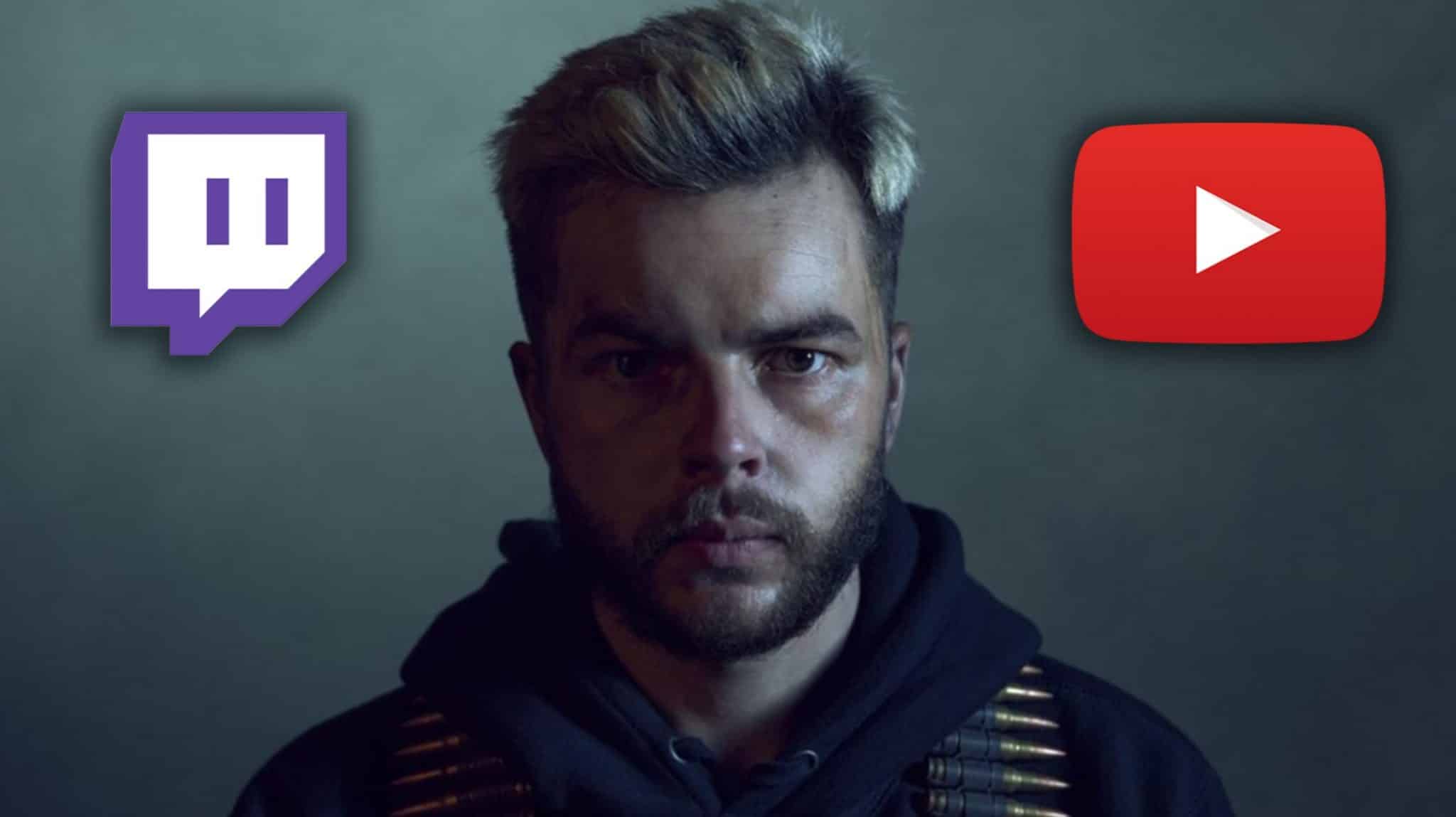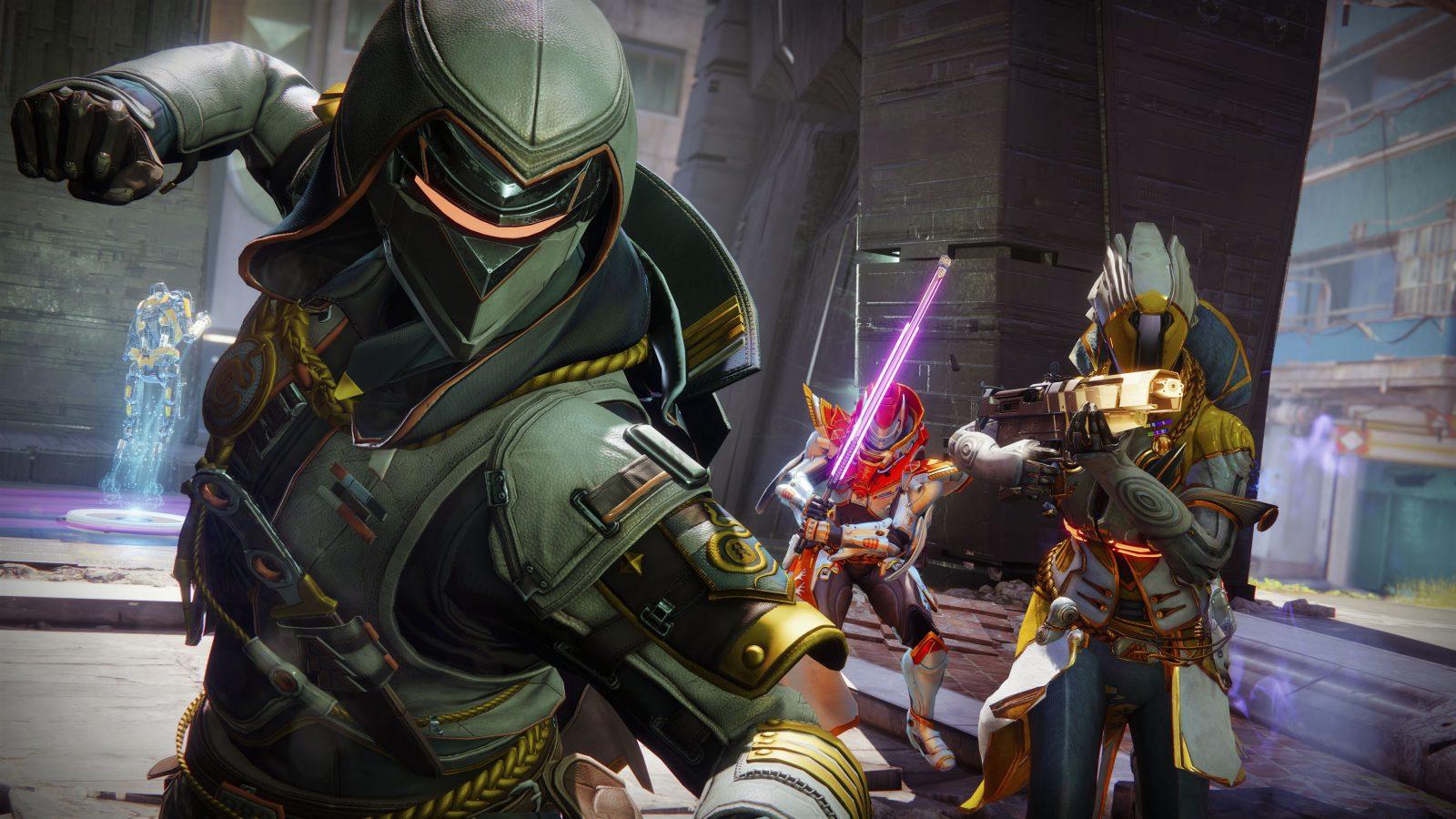Adam Fitch: Is co-streaming really harming esports?
 Valorant/Twitch: Shroud
Valorant/Twitch: ShroudCo-streaming is an activity in which a tournament organizer or game publisher allows other people to stream an official event broadcast, providing their own commentary in an effort to boost engagement and viewership. With this broadcasting choice becoming more common, especially across Riot Games’ streams, discussion is bubbling about whether it’s helpful or harmful.
Through the use of approved co-streamers, largely consisting of former professional players and major personalities that command huge audiences, event broadcasts for both League of Legends and Valorant have received significant increases in viewership numbers for select events.
The more recent example of co-streaming in action is the Valorant Champions Tour: Stage 2 Masters, the first international LAN event for Riot’s first-person shooter which took place in May 2021. With the help of co-streamers such as Michael ‘shroud’ Grzesiek and Image ‘Pokimane’ Anys, the event managed to eclipse over a million concurrent viewers, at its peak, in the grand finals between Fnatic and eventual victors Sentinels.
Riot Games will continue to utilize popular streamers and personalities in their flagship title League of Legends too, with the likes of Christian ‘IWDominate’ Rivera just being approved to co-stream the summer split for Chinese competition LPL. This is clearly a way of not only capitalizing on the streamer’s emphatic audience but also it will further expose Western viewers to Eastern competition — if successful, this could be a lasting strengthening of the event’s viewership and also create deeper understanding and engagement during international tournaments.
How co-streaming may be harming esports
This trend isn’t being received wholly positively though, with Christopher ‘MonteCristo’ Mykles, the commissioner of CS:GO event organizers Flashpoint, being one of the more prominent figures to discuss the potential downsides. While he acknowledges the positive effects on viewership, he believes that it’s “objectively bad” for sponsors and the development of narratives.
I'm very conflicted about the rise of co-streaming on esports event.
On the one hand, it's a good way to utilize the reach of big streamers.
On the other hand, co-streaming dominance is objectively bad for brand partners and proper esports narrative development.
— MonteCristo (@MonteCristo) May 24, 2021
Let’s take a look at his first point, brand partners and sponsors. Firstly, I want to make it abundantly clear that companies who pay to get in front of audiences through events are propping up organizers a worrying amount. The esports industry is entirely too dependent on sponsor revenues, Newzoo believes that $833.6m in industry revenues will be generated from media rights and sponsorships in 2021 — which makes up over 75% of their estimation for the total income of the ecosystem for the year. That’s less than ideal, to be polite.
- Read More: Can esports rely on media rights?
Co-streaming can potentially affect sponsors of events in a couple of ways. Perhaps the most worrying of which is if a selected co-streamer is what the kids these days label as “toxic.” These all-important brands lose control over how they are presented to audiences — it’s worth noting that co-streaming drove the majority of viewership for VCT: Stage 2 Masters — and that can cause serious concerns and doubt. If a co-streamer isn’t particularly family-friendly or decides to speak ill of an event sponsor, that could result in the loss of imperative revenue for the tournament organizer going forward. This is an issue.
Narratives are important in creating interest in particular match-ups, continuing storylines, and thus carrying viewership from one event to the next, and they can improve the broadcast through increased meaning and emotions. With co-streamers talking over the top of events, the paid, specialist talent members aren’t able to construe to the audience the gravitas and ramifications of a particular match. That crucial element could well be lost.
 Instagram: LA Thieves / Twitch / YouTube
Instagram: LA Thieves / Twitch / YouTubeA problem brought about by co-streaming, for my money, is that the social point of the stream isn’t likely to be the event broadcast. Streamers tend to have loyal fans that will tune in for hours on end, no matter the game or activity at hand. If they’re watching simply for Shroud, then there’s a tall task at hand for the organizers to make an event that can convert those who opted not to pick that particular stream.
If you’re watching the main event feed, you’re interested in the gameplay, a particular player or team, or perhaps even just really enjoy the casters, analysts, and host. If you’re watching a co-stream, that’s essentially casting a vote that says you prefer the personality over the polished, well-rehearsed, and often costly broadcast.
How co-streaming benefits esports
Co-streaming is earned media, at least in the case of the recent Valorant broadcast. The streamers were not paid to broadcast the event but, of course, they can still rake in money from advertisements, subscriptions, and donations as is normal when streaming.
Better yet, I believe co-streaming benefits streamers in another way too. They are given an opportunity to engage with viewers in a different way, sitting back and discussing an esports event is radically different from streaming gameplay where they’re required to give all of the attention in order to play their best. They can show another side of their personality and interact more than ever before those in their chat, possibly having a lasting effect moving forward.
In terms of brand partners, visual activations are still visible on the broadcast. Value can still be provided to sponsors. While it’s important to remember that some companies may not like having unexpected third parties commenting over airtime they’ve paid for, but the increase in viewership brought about by co-streaming may also bring in more sponsors, or help tournament organizers to increase the value of deals during renewals if they’re fine with how their activations are being presented.
Esports veteran, and a legend in his own right, Adam Apicella made an interesting point about the positive elements of co-streaming around the time of the discourse taking place. He doesn’t see the activity as a threat, or illegitimate, because in-game microtransactions are providing a lot of revenue, and media rights in esports are nowhere near as lucrative as they stand to be in major sports such as football and basketball.
I don’t asterisk viewership because of co streaming. The paradigm is changing, unlike traditional sports, publishers primary monetization is not distribution rights, it is MTX in game
Wide as possible w/as many watching as possible is way better than a commercial heavy exclusive
— Adam Apicella (@MrAdamAp) May 30, 2021
I’ve given my thoughts on media rights in esports earlier this year. A short summary, for those who don’t want to read the full piece, is that I doubt our industry will take the same form as the aforementioned sports when it comes to these types of deals. I also firmly believe that the industry is overly reliant on sponsorship revenues, so I tend to agree with Apicella here.
In 2019, Call of Duty and Overwatch developers Activision Blizzard reported $3.36 billion in microtransaction revenue. EA, behind games like FIFA and Apex Legends, reported $2.8 billion. Epic Games, the force behind Fortnite and Rocket League, netted an estimated $1.8 billion. Where media rights may lack, microtransactions are already proving to be a major part of gaming.
We’ve seen what can be achieved with in-game transactions, they’re becoming more commonplace in esports but they’re still not being utilized to the best of their ability in any competitive title. Why worry so much about media rights and bowing to sponsors when you can push your event out to as many people as possible through personalities and popular streams, continue to effectively print money by selling desirable in-game goods?
The verdict
I do see the potential issues that come with co-streaming, absolutely, but I have long believed that we’re an industry that can afford to experiment and innovate — this includes monetization. This is what informs my judgment on the effect of this trend.
We can continue to follow the path laid out by sports or we can make complete use of the digital, technological nature of gaming and look at additional methods of making the ecosystem profitable for all parties. With co-streaming, I believe it’s possible for the developers to win, the event to win, the fans and viewers to win, and for the streamer to win.



